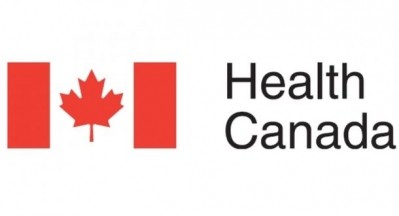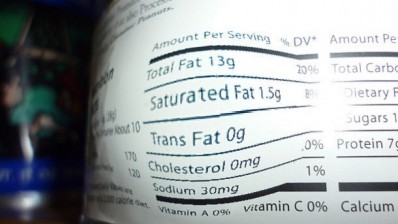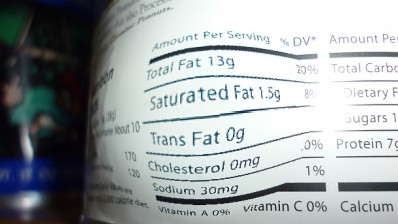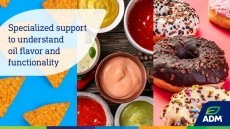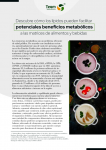Trans fats: Partially hydrogenated oils should be phased out in months, not years, says expert as FDA considers revoking their GRAS status
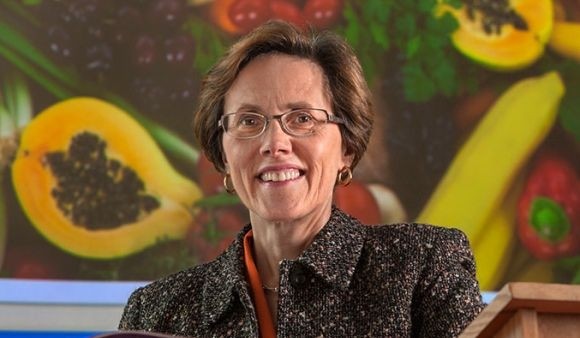
Penny Kris-Etherton, PhD, RD, professor of nutrition at the Pennsylvania State University, was speaking to FoodNavigator-USA after the FDA made a preliminary determination that PHOs are not GRAS this morning.
A substantial number of products still contain PHOs
The agency has launched a 60-day comment period to get a clearer picture of what might be a reasonable timeframe for a phase out before making a final determination. At this point, PHOs would be considered food additives and could not be used unless authorized by regulation.
While the FDA’s announcement suggested a phase out might be conducted “over a number of years”, Dr Etherton said: “I think this should take months not years.”
While reformulation is challenging, she said, food manufacturers have been working on alternatives for years, with pressure ramping up significantly since 2006 after firms were required to list trans fat content on the Nutrition Facts panel.
She added: “We’ve seen a great deal of progress over the years but it hasn’t wiped out trans fats. Likewise, companies can still label products as containing 0g trans fats if they contain less than 0.5g per serving, so the fact the FDA is taking this action great news for public health.”
CSPI: Not only is artificial trans fat not safe, it’s not remotely necessary

The news was also welcomed by CSPI executive director Dr Michael Jacobson, who added: “Not only is artificial trans fat not safe, it’s not remotely necessary. Many companies, large and small, have switched to healthier oils over the past decade.
“I hope that those restaurants and food manufacturers that still use this harmful ingredient see the writing on the wall and promptly replace it.”
While most major restaurant chains have stopped using PHOs, Carl’s Jr., Hardee’s, and Popeyes still have menu items that contain them, he alleged.
American Heart Association CEO Nancy Brown - who described the FDA’s move as a “tremendous step forward in the fight against heart disease” - said she hoped the FDA would also revise labeling rules allowing firms to make 0g trans fat claims even when products still contain small amounts of trans fat.
“This policy confuses and misleads consumers about the amount of trans fat they are actually eating.”
The alternatives to partially hydrogenated vegetable oils
So what are the alternatives to partially hydrogenated vegetable oils?
Speaking to FoodNavigator-USA this morning, ADM director of refined oils, North America, Erik Heggen, said multiple solutions are available from interesterified vegetable oils (where the structure of liquid oils is altered via chemicals or enzymes to make them more solid or/and more stable); to blends of palm oil fractions and other oils such as soy and canola; corn and cottonseed oils; high oleic canola oil; mid-oleic sunflower oil; plus the next generation of high-oleic soybean oils, depending on the application.
ADM, for example, supplies a lot of enzymatically interesterified oils to the tortilla industry, said Heggen, who noted that "you can also get some really nice results by interesterifying high oleic soybean oil".
But the idea that the industry had solved all of the R&D challenges when it came to developing healthier fats was misleading he said.
"Customers aren't just asking about trans fats, they are looking at a whole range of factors and the amount of R&D work going on in the fats and oils industry to meet customers' technical, nutritional and economic needs is as high as ever. It's an ongoing process."
Bunge: A wave of innovation
Speaking to FoodNavigator-USA last year, Bunge Oils director of innovation Dilip Nakhasi, said the pressure to reduce or eliminate trans fats and lower saturates at the same time without compromising taste or performance had kick-started a wave of innovation in the fats and oils -and plant breeding industries over the past 15 years.
Bunge made a major breakthrough recently with the launch of high oleic, zero trans-fat bakery shortenings (#172 and #358) under its UltraBlends brand containing less than 19% saturated fat (that’s 40% less than standard reduced trans-fat shortenings and 60% less than traditional shortenings), he said.
The products were developed using ‘saturate sparing’ technology, which utilizes cellulose fibers and ‘triglyceride mismatch’ technology, he explained.
“This technology is based on a hard stock blend [of soy and palm], which when combined with [cellulose] fiber, enables the shortening system to trap and bind large amounts of liquid [canola] oil, while contributing structure. It creates a cage that traps liquid oil."
Pressure has been building

The pressure to ban PHOs has been building in recent years, with the CSPI calling on the agency to revoke their GRAS status in 2004, and heart disease researcher Dr Fred Kummerow recently filing a lawsuit against the agency for failing to respond to his 2009 citizen petition calling for a ban on artificial trans fats.
In a complaint filed with Illinois Central District Court on August 9, Dr Kummerow - an emeritus professor of comparative biosciences at the University of Illinois - claimed that the “use of partially hydrogenated vegetable oils in the American food supply has contributed to a national epidemic of coronary heart disease” and also contributed to diabetes, cancer and Alzheimer's disease.
In his 2009 citizen's petition, Dr Kummerow wrote: "Trans fat calcifies both the arteries and veins and causes blood clots. Trans fat leads to the reduction of prostacyclin that is needed to prevent blood clots in the coronary arteries. A blood clot in any of the coronary arteries can result in sudden death."
FDA: Current intake remains a significant public health concern
On a call with reporters this morning, FDA commissioner Margaret Hamburg, MD, said trans fat consumption had “declined dramatically” from 4.6g/day in 2003 to 1g/day in 2012.
However, “current intake remains a significant public health concern”, she said, while FDA deputy commissioner for foods Michael Taylor said “a substantial number of products still contain PHOs” including cookies, crackers, frozen pizzas, coffee creamers and frostings.
A recent report in the journal Preventing Chronic Disease also suggested that progress in reducing or removing PHOs has slowed in recent years.
Trans fat is made by adding hydrogen to vegetable oil via a partial hydrogenation process, which can make liquid oils more solid at room temperature (enabling firms to use liquid vegetable oils in baking instead of butter where a more solid fat is required, for example), and also makes them stay fresher for longer/more stable.
However, "fully" or "completely" hydrogenated oil doesn't contain trans fat.
Click here to read the FDA’s preliminary determination - which does not affect trans fats that occur naturally in some meat and dairy products. Those invited to comment are asked how long a phase out period might reasonably take, or whether an alternative might be to set a maximum threshold for trans fats in foods.

